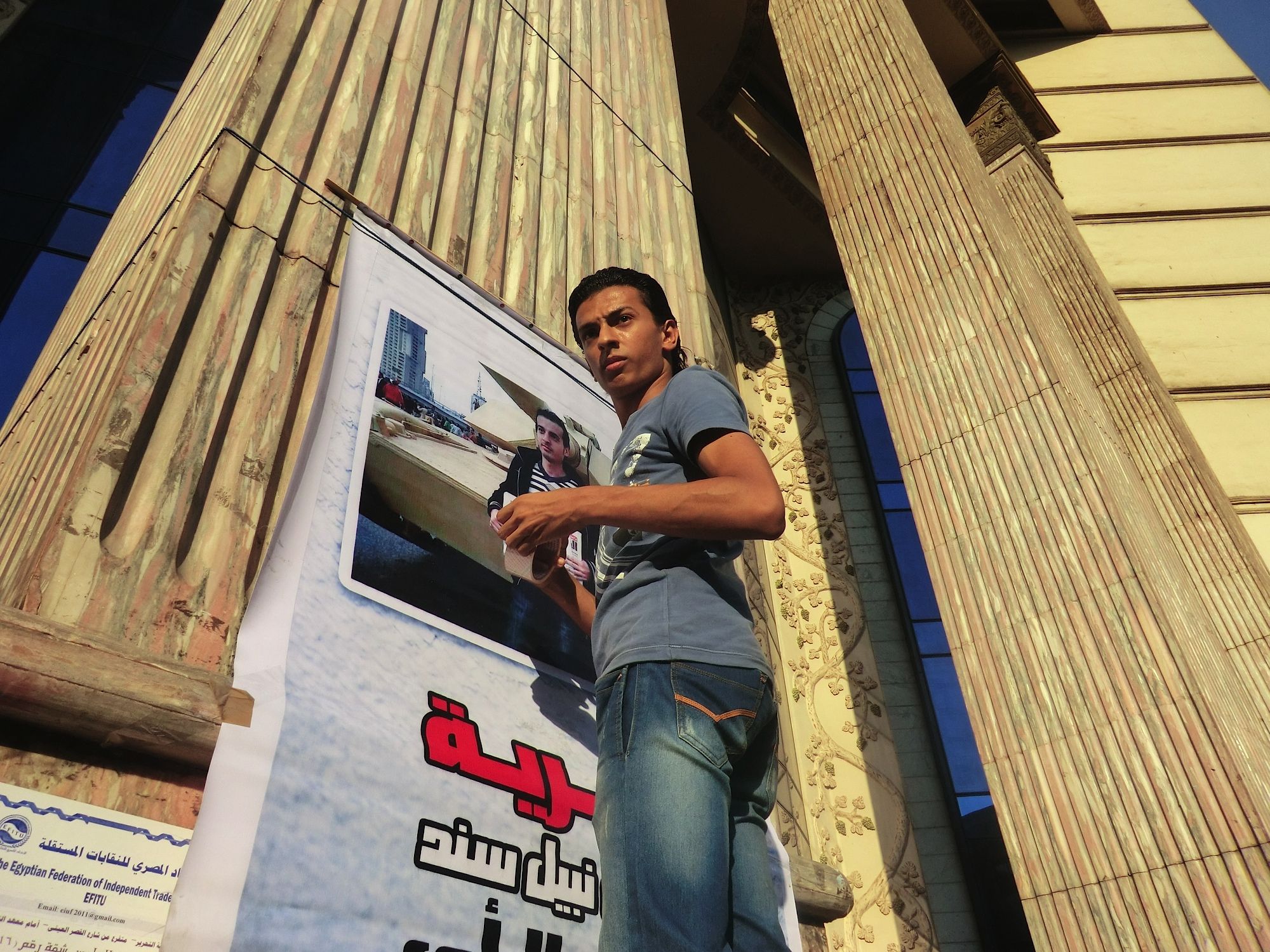Maikel Nabil Sanad is dying, his family says. The jailed 26-year-old blogger has been on a hunger strike for over two weeks to protest his imprisonment. Sanad is serving a three-year prison sentence after a military court on April 10 convicted him on charges of insulting the armed forces and publishing false information.
"His condition is very dire," says his father, Nabil Sanad Ibrahim. Two days after Sanad began his hunger strike on August 23, prison officials transferred him to 24-hour solitary confinement. A week later, he stopped drinking water and refused to take his medicine for a previously existing heart condition. The next day, he slipped into a coma, his family says, and was temporarily transferred to the prison hospital. While he has since awoken from the coma and resumed drinking and medication, Sanad remains critically ill and can hardly move. "He is also suffering depression and psychological distress. He needs both physical and psychological treatment," his father says.
Sanad, an avowed pacifist and campaigner against army conscription, was arrested by military police on March 28 after he penned a lengthy article on his blog titled "The people and the army were never one hand" in which he detailed cases of abuse by the military—a number of which had already been documented by local and international human rights rights organizations—and criticized the Supreme Council of Armed Forces for undermining the revolution. "The revolution has so far managed to get rid of the dictator but not the dictatorship," he wrote.
"Maikel was never afraid," says his brother Mark, 19. "Since 2005, he wrote many articles against Mubarak and was never arrested, never taken to court. But the first time he writes against the military council, he gets arrested."
Sanad was brought before a military tribunal and was sentenced without his lawyers present after they had been misled into thinking the ruling would be postponed and had left the courtroom.
The Committee to Protect Journalists and Reporters Without Borders have called for his immediate release. “While Sanad’s hunger strike is a personal decision, the authorities are responsible for the cause, an unjust and anti-democratic political imprisonment,” Reporters Without Borders secretary-general Jean-François Julliard said in a statement.
Sanad is one of more than 12,000 civilians who have been prosecuted in military courts in Egypt since the revolution began on January 25. Defendants are typically tried within a matter of days or hours and have little access to an attorney or family members. Nearly all of those tried have been convicted, with many receiving prison terms that range between a few months to several years.
While the issue was initially ignored by the media and many political groups when it first surfaced, a grassroots campaign to end the practice has helped make it a major point of contention in the post-Mubarak transitional period. Opposition to military trials was further galvanized last month when Asmaa Mahfouz, a prominent Egyptian activist, was summoned to the military prosecutor and charged with insulting the military after she criticized the justice system and warned of possible violence in a two-sentence Tweet. The case ignited a firestorm, drawing criticism from leading presidential candidates and political groups, and eventually prompting the military council to order the charges be dropped.
While Sanad's case involved similar circumstances—charges of insulting the military for comments posted online—he ended up going to trial and received a three-year sentence from the military court with only a dim possibility of appeal many months away.
"Maikel isn't a prominent public figure, Maikel is a normal person and that is why they imprisoned him," his father said during a protest in solidarity with his son's case outside the Journalists' Syndicate. "Others who had a lot of public support and had similar charges were released. But Maikel is one of the general public and he doesn't have anyone to defend him."
The day after the protest, Sanad's father and brother took part in an event at the Center for Socialist Studies in Giza, where activists, lawyers and the families of those detained gathered in an overcrowded room to speak about the issue of military trials against civilians. Prominent activist and blogger Hossam el-Hamalawy said that ending the use of military trials was the principal demand of a massive rally planned by revolutionary youth groups in Tahrir Square on September 9.
Sanad plans to refuse water and medicine for the next two days in solidarity with the Tahrir protest, his brother says, putting his life again on the line.



